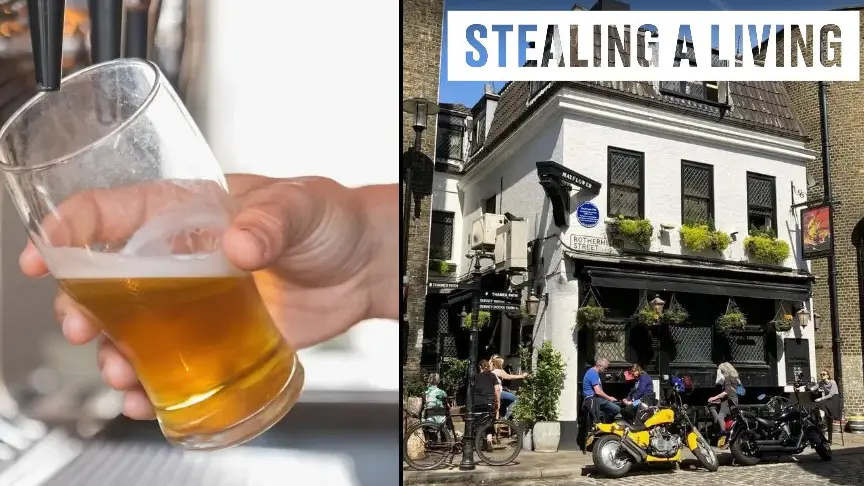
Even before the cost-of-living crisis had cast its grip on the UK, Live and Let Live, a pub in Northampton, was already feeling the strain. But since April, when energy cost hikes were piled on top of an already stretched economy, landlord Miranda Richardson has had no choice but to put prices up just to try to keep pace with the current situation.
“We don’t talk about Covid anymore, it’s got nothing to do with that,” Miranda told LADbible. “In our own personal lives, all our own bills are going up – it’s heat or eat, and that’s where the priorities lie.”
The hardest cost for Live and Let Live has been the loss of customers, but that’s just one piece of the puzzle. “In January, I calculated that it costs us £2,700 just to open the doors for a week. That’s before I’ve bought any product, and I’ve not bought any food or anything like that. I’ve just redone that for April and it’s £3,400. And I’m a small village pub – there are some with much higher overheads.”
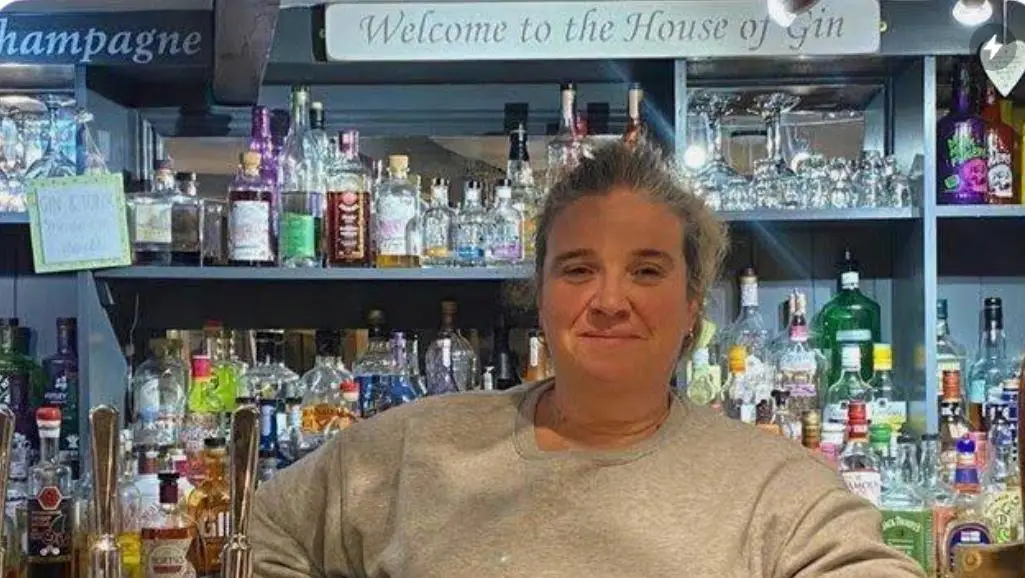
Advert
According to the British Beer and Pub Association, the average cost of a pint has jumped from 3.49 to £4.07 over the past three years, with many venues having to put up their prices just to break even.
Miranda was left with no choice but to add an extra 30p to their beer prices, the first increase in three years. “You can imagine how that went down with the customers, but if I’m honest it should’ve gone up by 50p. My costs have gone up 6 percent a barrel.”
The problem is that the entire pub supply chain had already been backed into a corner by Brexit and Covid, and this has only been compounded by skyrocketing costs in recent weeks.
“My food wholesaler is a delivery company so their fuel and energy prices have gone up, they’ve lost drivers, and they’ve lost business from venues that closed down after the pandemic,” explains Miranda. “So now my food costs are through the roof. For example, five kilos of chicken breast used to cost £20, and now it’s £27 – that’s a 33 percent increase.”
Miranda made a joke that she’s going to ‘buy shares in Tipp-Ex’ because she can’t afford to keep changing the menus. “Realistically I need to chuck a pound on everything again.”
Live and Let Live is just one of many pubs across the country struggling to cover bills amid the ongoing cost-of-living crisis, resulting from surges in fuel, energy and food prices.
In recent weeks, inflation hit a new 30-year peak. Prices are rising at such an exponentially faster rate to wages right now that the Bank of England believes inflation could hit double digits in 2022.
“It’s the perfect storm; nothing’s in isolation,” says Sam Gregory, landlord at The Bank Tavern in Bristol city centre. “People aren’t going out in the way they used to, but the double whammy for us is we’ve been hit with so many costs now.”
Despite strong support from the public for VAT to remain at 12.5 percent beyond April in order to assist the economic recovery of the hospitality sector, this figure rose to 20 percent. “Then there are the energy costs,” adds Sam. “To run a commercial kitchen that is principally fired on gas is unbelievably expensive now.
“I’ve also had to increase my staff’s wages quite considerably. And all of our ingredients – fruit, veg, meat, beers – they’re all transported on trucks, which you have to fill up with diesel or petrol. So we’re just being squeezed from every direction and there’s no let-up in sight.”
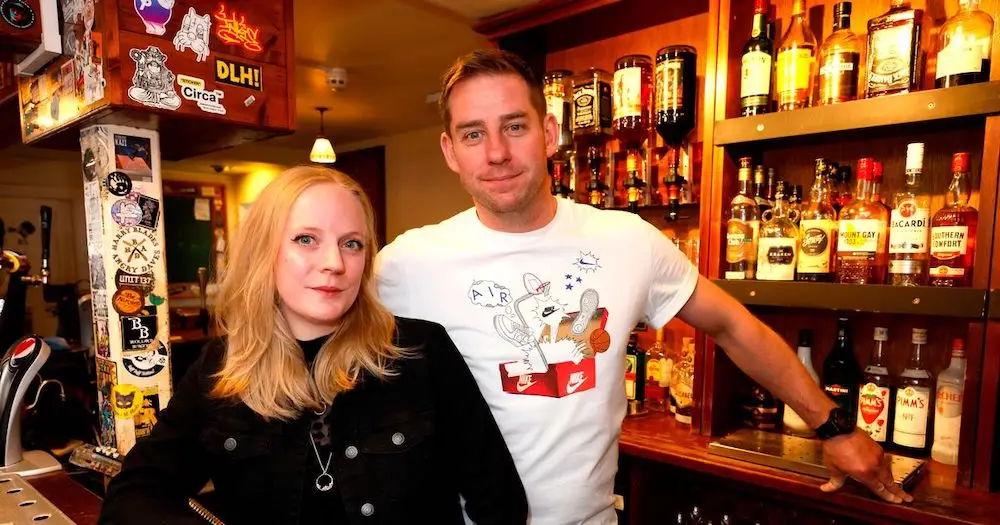
Although pub culture is an integral part of British life, they’re one of the first institutions to be hit when the economy is struggling. “We’re a discretionary purchase, nobody has to go to the pub,” he adds. “People are affected by the huge spikes in fuel, utilities and food, so what can you do if you want to drink? You buy some beer at the supermarket and stay home.”
And while The Bank Tavern is situated in the city centre, it's still not enough to make up for the 'perfect storm' of pressures.
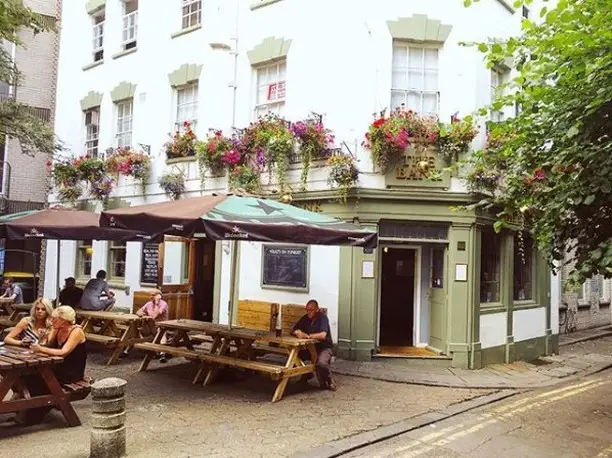
The Mayflower in London is able to benefit from its location, attracting a range of regulars and tourists throughout the year. “The Mayflower is quite a popular pub so we’ve been lucky,” says Sueleen Berongoy, former pub general manager and events organiser for the venue’s owner, Black Dog Pub Company.
But even pubs in comparatively stronger positions are witnessing first hand the impact the crisis is having. “People just don’t have as much disposable income, so the next couple of months we’re going to be gritting our teeth and hoping that we don’t lose too many of our wonderful customers,” says Sueleen.
This highlights the conflict presented by the current situation. Ever since the Covid-19 pandemic, people have been itching to get back out and go for dinner and drinks with friends. But if prices continue to rise, many will prioritise spending on essential items and this means at the very least switching an evening pint for a tinnie at home.
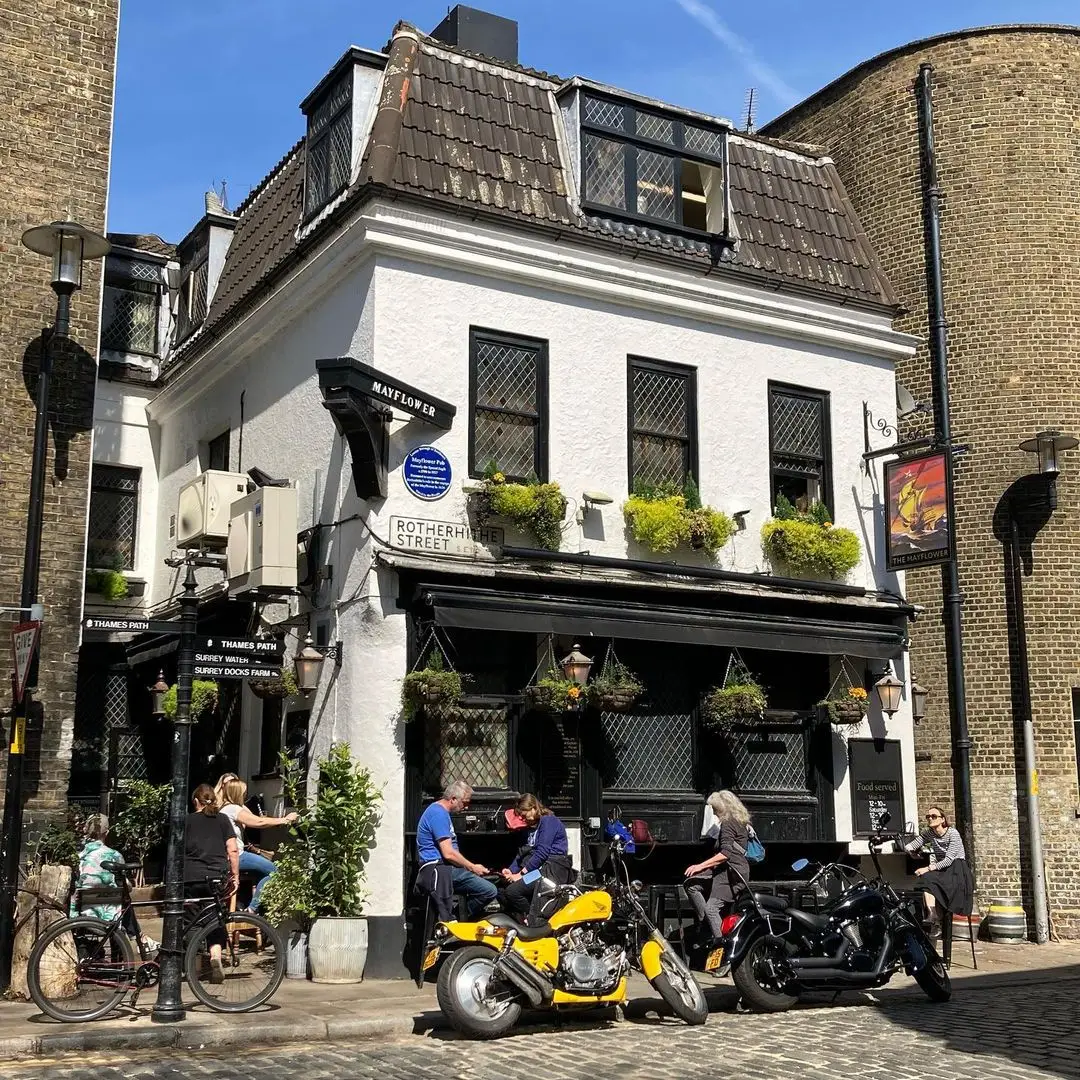
Rising pint prices have been the subject of many stories of late. Marston's Brewery, one of the UK's largest pub chains, had to increase the price of some of its drinks by as much as 45p amid an increase in operating costs.
“We had to put ours up by about 30 or 40p,” notes Sueleen. “We keep it as low as we can but when overheads keep going up and up, we have no choice – we can’t keep swallowing the costs. And the thing is, the average pint now I’ve found is about £5.50, maybe £5.20 if you’re lucky.”
When asked about predictions that the average cost could go up to seven or eight quid, Sueleen responds, “I really hope it doesn’t get to that.”
While you could argue the price of a pint is the least of the country’s problems right now, the fact is that pubs are a significant part of many Brits’ social lives. It’s where people go to unwind and connect with their community, a vital activity during testing times.
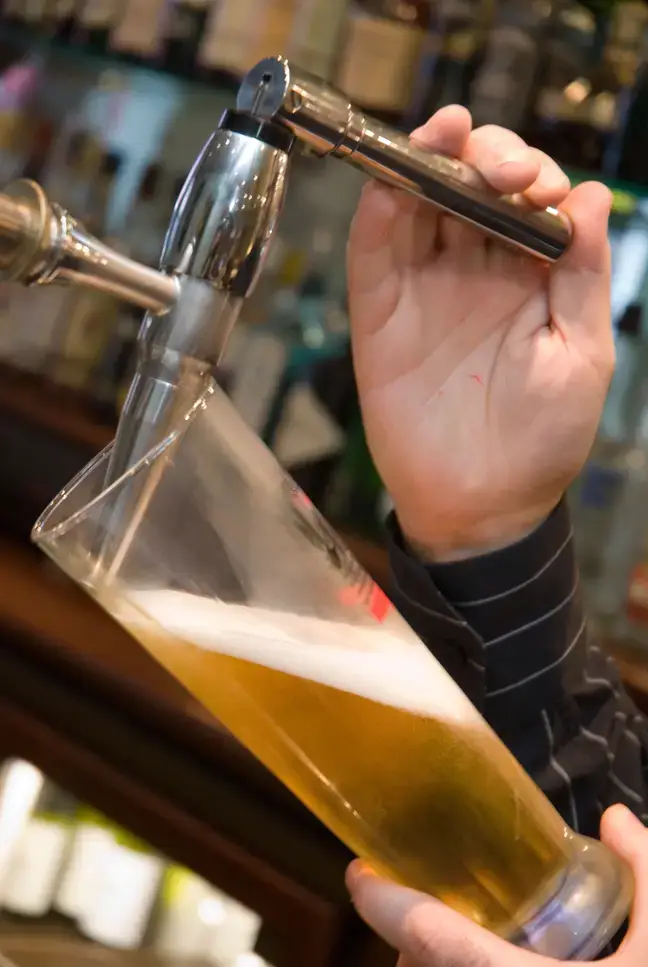
And if drinks costs do jump to the higher end, Sueleen points out, “It really would exclude a huge amount of people who like to come in, have a nice time and get to know lots of different people.”
As for where this leaves the hospitality sector moving forward, the consensus amongst those we spoke to is that the government needs to step in if one of Britain’s key institutions is to survive.
“They say their hands are tied but when you look at what they’re doing in Europe, there’s a lot of things they can do that’ll have an impact on the amount of money people have in their pockets,” says The Bank Tavern’s Sam.
“In other countries, they’ve slashed the cost of public transport, they’ve slashed the tax on fuel, just to try and keep it on a level that people can function.”
He continues: “People aren't being extravagant – people need to get to work, they need to go out and about. This isn't people being frivolous, this is people just functioning on a day to day level and really struggling. And we're just a small part in that.”
Rishi Sunak announced a number of measures in his Spring Statement in March in a bid to address rising inflation in the UK, including a fuel duty cut of 5p, an increase in the National Insurance threshold to £12,570 and, from 2023, tax cuts and long term reforms to incentivise businesses.
However, people feel the measures don’t go far enough to support individuals through rising costs, and those in the hospitality industry couldn’t help but notice the Chancellor’s silence on the VAT spike.
“They don't seem to be sorting out the effects of Brexit, they don't seem to be addressing the rising costs of living and they don't seem to be addressing the shortfall in manpower,” says Sam.
The impact this is having on Britain’s pubs is clear to see. “My job is to make people happy,” adds Miranda. “But at the moment, I struggle to get out of bed in the morning because I’m facing another day of ‘robbing Peter to pay Paul’.
“When you’ve got people like Martin Lewis giving us advice on wearing gloves that cost 4p a day, why are we accepting that? Why do we accept that we've got 22,000 food banks in the UK? It’s not okay.”
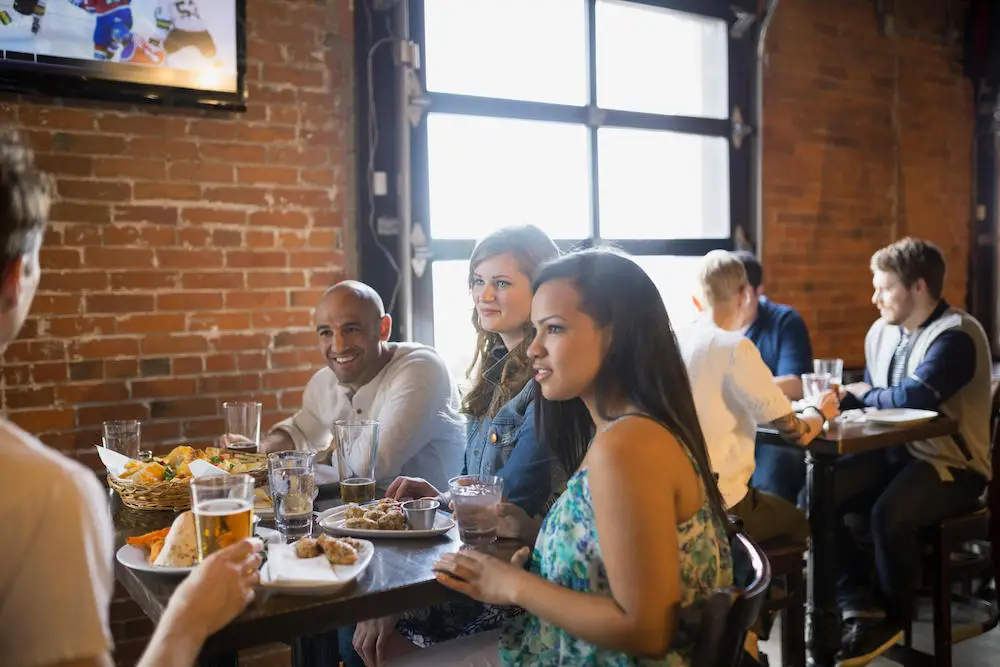
As it stands, all landlords can do right now is the same as the rest of the public – try to stay afloat and take things a day at a time. What’s important to remember is that there is absolutely no shame in having to cut costs where possible and seek help when it’s made available.
“What this situation has demonstrated is how vulnerable we can be,” says The Mayflower’s Sueleen. “I hope that from this we can, in our local communities and the wider public, be kinder to each other and be as supportive as we can. I think that’s really important.”
Topics: Rishi Sunak, Money, UK News, Food And Drink